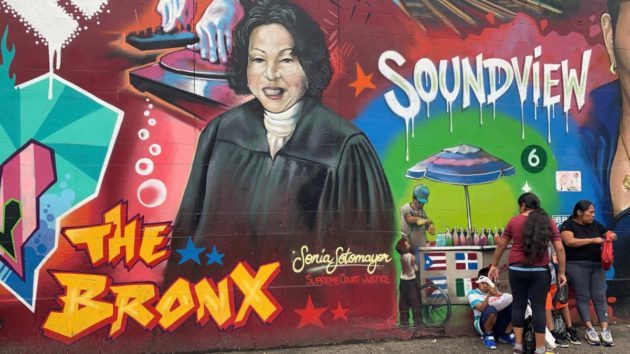
The annual Bronx Puerto Rican Day Parade along the Grand Concourse will be filled with classic bomba dancers and bedazzled floats carrying pageant queens, as tradition has dictated for the last three decades.
But this year, the Sept. 22 parade is expected to include a stronger than ever showing of the borough’s growing ethnic diversity. The cultural medley is expected to showcase Falun Dafa Drum Dance Team, a Queens-based Chinese musical group that will be drumming alongside salsa music. Central Americans, led by local Guatemalan TV host Chapín, are expected to walk the route alongside African-American and Taíno Indian groups.
The parade is the second-largest Puerto Rican parade in the United States, next only to Manhattan’s two million-strong event.
“Being part of the parade makes me feel closer to Puerto Rico,” said Maribel Mercado, 45, this year’s parade president, who has been involved with parade planning for 12 years. But, she said, the drive to recruit groups like Dominicans, Ecuadoreans, Bangladeshis, Mexicans, African Americans and Chinese to the parade reflects the demographic realities in the Bronx.
Parade planners not only promote a unifying melting pot message, but it also helps boost parade attendance, which has been on the decline. Census data shows that the once-dominant Puerto Rican community has declined by 19%, from 338,000 in 1990 to 274,000 in 2017. Parade attendance has fallen suit. As recently as 2005, the parade drew around 50,000 attendees, according to police. This year, the police estimate 15,000 attendees.
Puerto Ricans have always had a strong presence in the Bronx, which is still the case, despite the declining numbers, said Juan Gonzalez, Puerto Rican journalist and author. “Some have left the city, some have moved upstate, some have retired to Puerto Rico and Florida,” said Gonzalez.
Many work at key healthcare and educational organizations, such as Hostos Community College and Bronx Lebanon Hospital said Gonzalez. Puerto Ricans also dominate county politics. Three of the last four borough presidents have been Puerto Rican — though that might change as older politicians retire and newer communities mobilize politically.
In many ways, the focus on multicultural participants is an extension of the founder’s original mission. A South Bronx math teacher from Salinas, Angel Luis Rosario, founded the event in 1987 as the first Puerto Rican parade in New York with the idea that any group—not just Puerto Ricans—should celebrate their identity.
Mercado said that this year’s parade leadership worked to secure sponsorships from new organizations like Havana Café, a well-known Cuban restaurant.
Francisco Gonzalez, a former parade chairman who just retired, planned the event for 26 years and has witnessed the Bronx’s demographic changes firsthand. He is confident that new leadership will continue his work to honor the Puerto Rican community as well as to adapt to the changing Bronx.
“We are very proud to be Puerto Rican,” said Francisco Gonzalez, who spends part of the year in Yauco, his family’s mountain hometown in Puerto Rico. “But we follow the Puerto Rican belief that mi casa es su casa. We open our arms to celebrating differences.”



